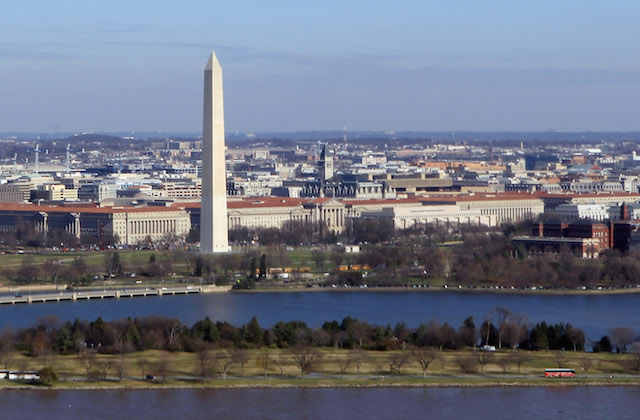The nation’s capital just took a major step toward passing the most ambitious climate bill in the country—at a time when the federal government denies the need for such laws.
Yesterday (November 27), the Council of the District of Columbia voted unanimously for the Clean Energy D.C. Omnibus Act of 2018, more commonly referred to as the Clean Energy D.C. Act. The law would move the city’s power grid entirely to renewable energy sources by 2032, making it the first municipality to do so.
Reports ThinkProgress:
rnt
The vote on Tuesday came in the wake of a bleak report; the National Climate Assessment (NCA), released last week, found that climate change is wreaking havoc on the United States. According to the NCA, D.C. is projected to see sweltering summers, warmer winters and an onslaught of rain as a byproduct of global warming, endangering many of the city’s most vulnerable residents.
On the same day that the vote took place, President Donald Trump gave an interview to The Washington Post in which he fully distanced himself from the Fourth National Climate Assessment. During the interview, Trump said, “One of the problems that a lot of people like myself, we have very high levels of intelligence but we’re not necessarily such believers.” He added, "As to whether or not it’s man-made and whether or not the effects that you’re talking about are there, I don’t see it."
As the federal government turns its attention away from policies that will increase the use of renewable energy, The Post reports how local and state governments are taking up the cause:
rnt
California is working to supply 50 percent of residents’ electricity from renewable sources by 2030. Beginning in 2019, San Francisco will offer consumers the option of receiving electricity from renewable sources but will not require it.
t
Virginia’s renewable energy goal, adopted in 2007, aims for 15 percent renewable sources by 2025. It’s a voluntary goal, intended to encourage utilities to switch to renewables.
In addition, by 2020, Maryland must obtain 25 percent of its energy from wind, solar and other renewable sources.
While passing the legislation for the majority-Black city is a landmark action, it is not without its critics. The bill contains clauses that some environmental activists take issue with. Specifically, reports The Post, they have flagged “language that would allow electric utility Pepco Holdings to charge customers more as it enacts energy-efficiency programs as a way to offset revenue lost when ratepayers consume less power.”
A second vote will take place on December 18. If it passes, it will go to Mayor Muriel E. Bowser to be signed into law.
